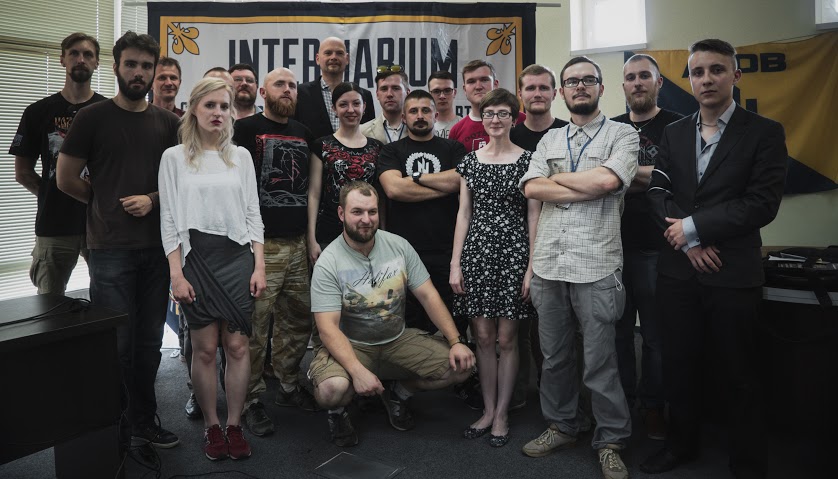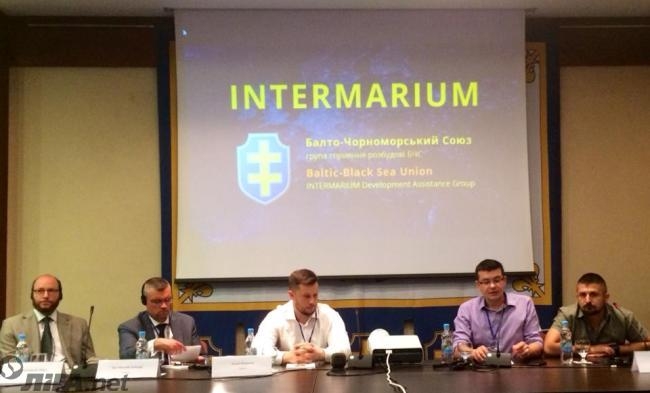July 2, 2016, in the city of Kyiv, at the conference hall of the Radisson Blu Hotel, on the initiative of Andriy Biletsky, the leader of the Azov Movement, MP of Ukraine, the founder and the first commander of the Azov Regiment, was held the Inaugural Conference of the Intermarium Support Group. For the first time, numerous Ukrainian and international civil initiatives seeking for an alternative vector of European integration gained a practical dimension and a focal point. In turn, the countries of Eastern and Central Europe obtained real prospects for uniting their capabilities in the strategic fields in the near future.
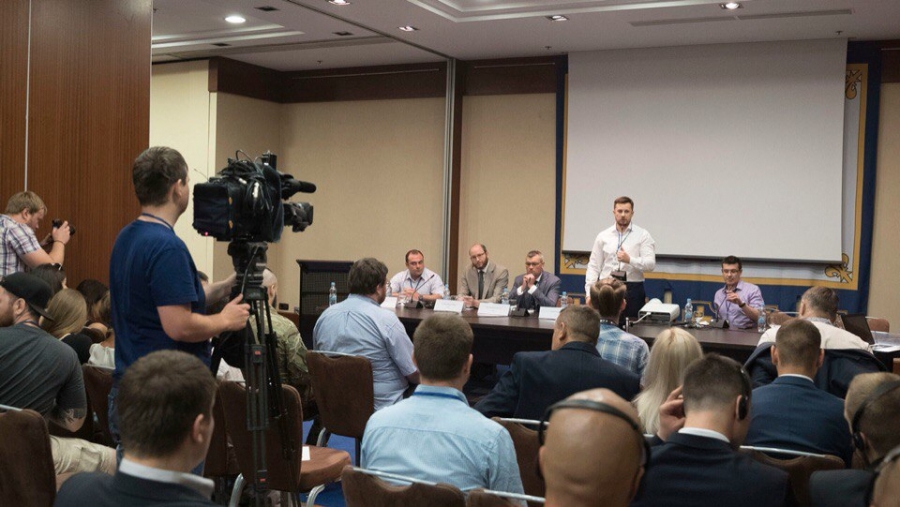

Delegates from all over the region attended the conference, particularly Poland, Belarus and the Baltic States, from the government representatives to the volunteer organizations in support of Ukraine like NGO “Vaba Ukraina” (Free Ukraine) from Estonia. These states, along with Ukraine, are the most likely candidates for the membership in the Baltic-Black Sea Union, its core. However, representatives of Croatia and Slovakia were no less enthusiastic participants of the international event, thus showing that the second stage of integration, the Adriatic-Baltic-Black Sea Union, is not far off. In addition, experts in the field of military cooperation (conference participants and guests from Sweden and Georgia) have shown that potential partner countries of the Intermarium are really worthy of this title, unlike Western partner “peacekeepers.” Finally, emerged a remote yet far-reaching horizon in the form of allied areas inside the Russian Federation, namely the autonomy project of the Kaliningrad region known to have a strategic nuclear importance.
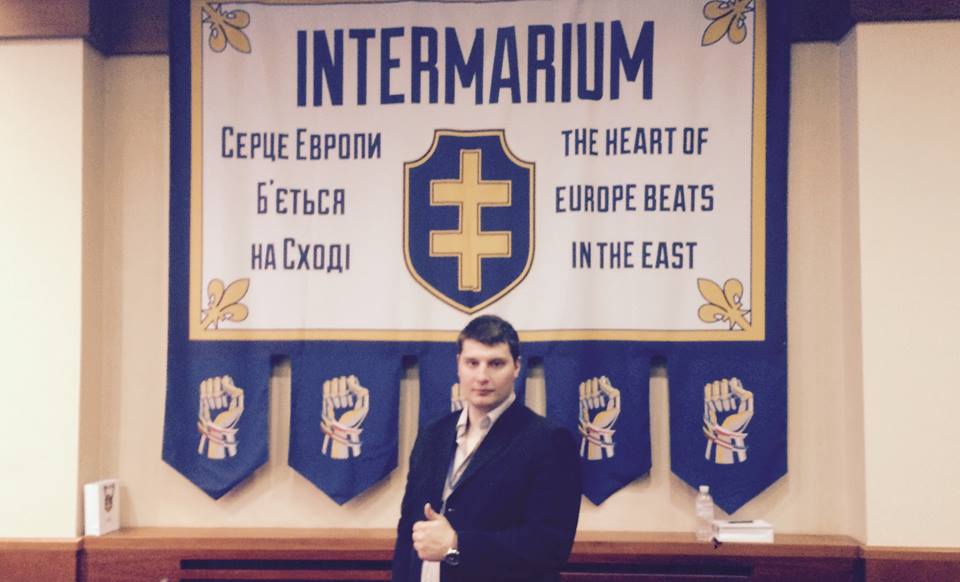
Although the Intermarium Support Group, which united various national delegations, is a public initiative, military attaches of diplomatic missions from the key countries in the region (Poland, Hungary, Romania and Lithuania) also joined the conference as honorary members of the Conference Bureau and expressed the wish for further cooperation with delegates and the Azov movement. Precisely welcome speeches by the leader of the Azov Movement Andriy Biletsky and military attaches opened the event, signifying the seriousness of intentions of the organizers. Panoramic presentation of the Baltic-Black Sea Union project by Mykola Kravchenko, deputy head of the Staff of the Azov Civil Corps aroused great interest and dozens of questions from the audience and journalists. The detailed answers and comments to the analytical handouts were given to all participants in the work of sections elaborating on the presentation in the following pivotal areas: military cooperation and defense; economics and energy; geopolitics, science, education and culture.
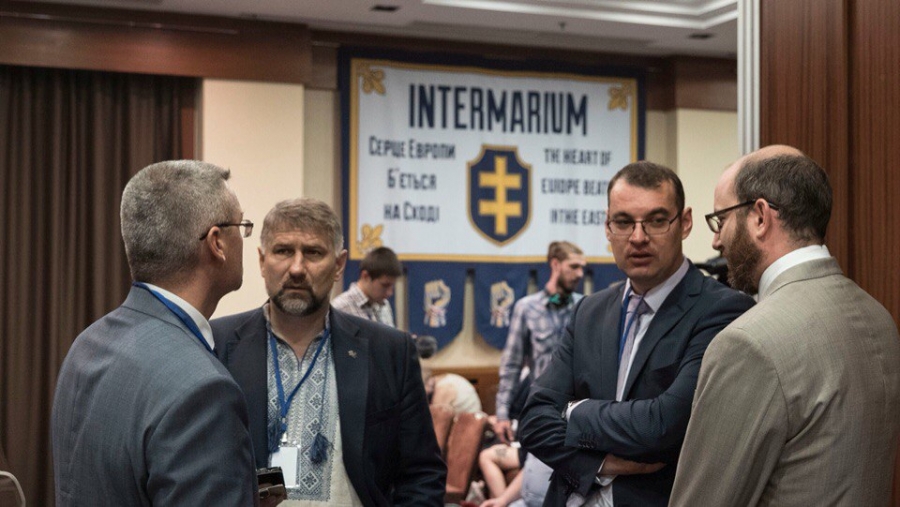
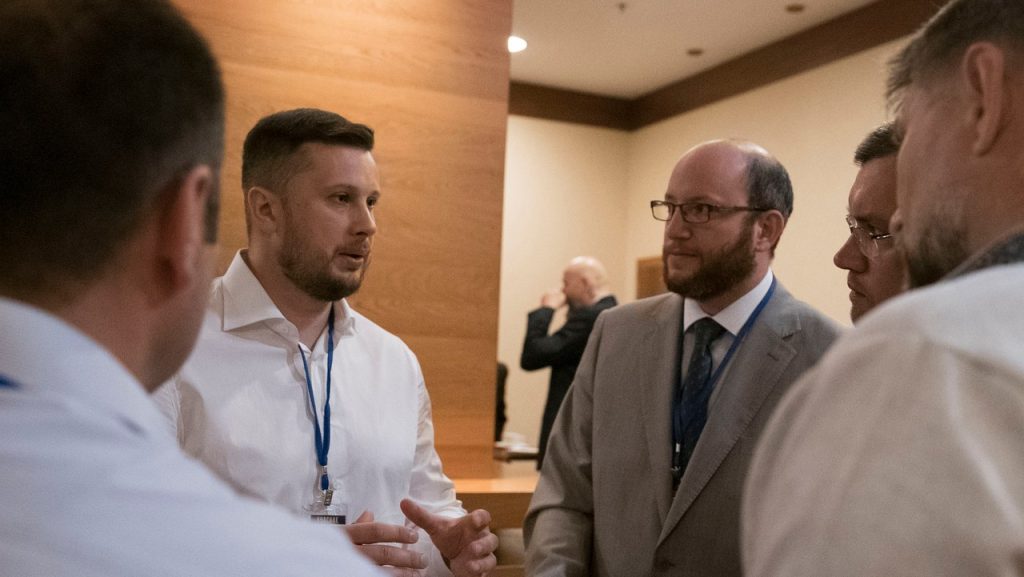
Baltic-Black Sea cooperation in the field of defense got the widest coverage as it meets the main request of the region: setting up a regional security system after the international legal guarantees of peace in Europe and the inviolability of frontiers of sovereign states, especially the Budapest Memorandum, have turned out to be illusory. The ratio of speeches made by the “Azovians” (Olexandr Alf’orov, Andriy Dyachenko) within this section was also fully expected given that the real military experience gained by Ukrainian and foreign fighters of at first the volunteer battalion, now the exemplary Azov regiment during the new-generation warfare waged by the Russian Federation in the Donbas and the Azov Movement’s contribution to the military and information security of not only Ukraine but the whole region are the most persuasive arguments in favor of sustainability of the Kyiv-based Intermarium Support Group. In particular, quite a number of proposals for cooperation with the Azov Movement in the field of defense received Giorgi Kuparashvili, the head of the Military School of Colonel Yevhen Konovalets, who spoke on a unified regional system of military education on a basis of the Ukrainian-Georgian cooperation.


The practical focus of the conference was also confirmed by the next section dedicated to the prospects of the region’s energy self-sufficiency and building a common economic space in Eastern and Central Europe. The guest from Belarus, expert of the analytical portal “Belarus Security Blog” Zmicier Mickiewicz revealed the possibilities for the military-industrial cooperation in the region, especially joint production cycles, on the example of the real interaction between the Belarusian and Ukrainian defense industries after the outbreak of war in eastern Ukraine despite the official policies of Minsk. Mariusz Patey (Poland), director of the Institute of Professor Roman Rybarski, discussed the ways of the win-win economic cooperation in the region, from the establishment of joint investment funds to the restoration of the oil pipeline project “Sarmatia” connecting Odessa and Brody that was meant to reach the city of Plock (already linked with the Polish city of Gdansk).
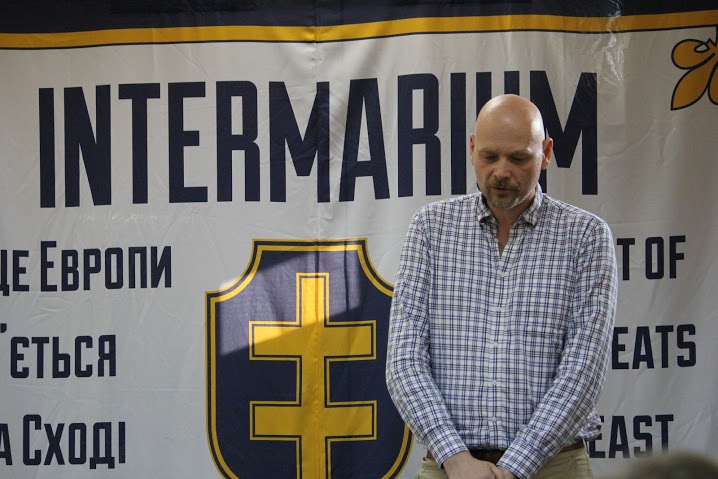
Inequality of Central and Eastern Europe with unofficial leaders of the European Union, especially Germany and France, in solving economic issues, which was discussed within the previous section, was also raised in the light of the Adriatic-Baltic-Black Sea Union namely as a geopolitical alternative of the European Union within the final conference section on regional cooperation in the fields of geopolitics, science, education and culture. All more evident EU crisis after the refugee issue exacerbation, which symbolically resulted in the Brexit, encourages accelerating efforts towards the Adriatic- Baltic-Black Sea Commonwealth, which is united not only by the common security and economic interests but also by similar understanding of cultural values and the historical destiny. The success of Croatia in defending its cultural identity in spite of globalization trends in the EU was the subject of Leo Marić, journalist of Croatian portal Sloboda.hr, including in the context of the Adriatic-Baltic-Black Sea partnership initiated by President of Croatia Kolinda Grabar-Kitarović. Activity of the Adriatic-Baltic-Black Sea Group and current geopolitical developments in this area, both strengths and risks of the search for an alternative, highlighted in her speech Gintarė Narkevičiūtė, frequent participant of the Intermarium related events, Director for International Affairs at the Ronald Reagan House, Vice-President of the IYDU and Ambassador for the Lithuania Tribune.
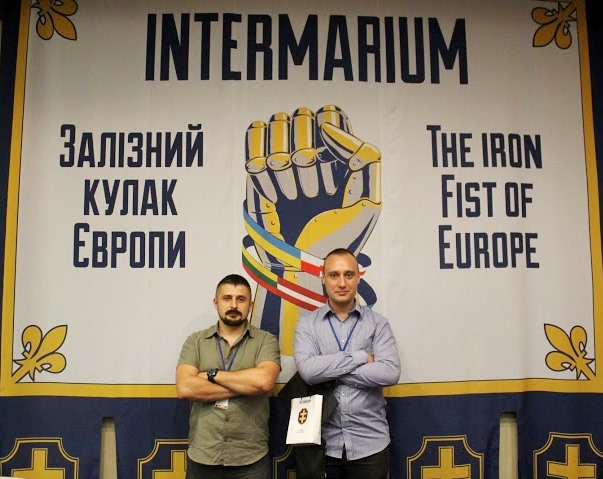
During the concluding conference section also took floor Taras Osaulenko, the organizer of the First Baltic-Black Sea Forum in Kyiv, MP of Ukraine of the 7th convocation and the head of the NGO “International Initiative to Support Ukraine,” which is the best proof for the consolidation of civil forces aiming at the formation of natural for Ukraine and the entire region geopolitical union in the context of the common security challenges of today. Speeches by other Ukrainian participants on the geopolitical, educational, scientific and cultural topics (Olexandr Maslak, Olena Semenyaka, Edward Yurchenko and Svyatoslav Vyshynsky), among others, made especially clear that the “eurointegration” line of the current Ukraine’s government was artificial and untimely.

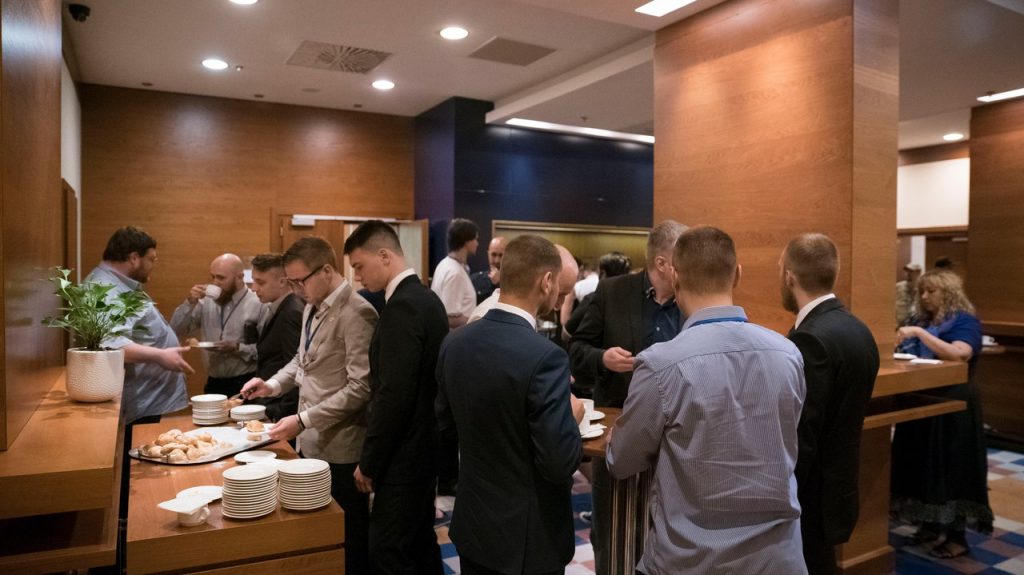
Speeches of the conference participants, some of which are quite programmatic, may be found in the bilingual (UA and EN) collection of conference materials.

The reasons why the Intermarium cooperation opens an opportunity for the alternative (parallel) in regards to the EU European integration are explained in our video:
R E S O L U T I O N
of the Inaugural Conference
of the INTERMARIUM (ADRIATIC-BALTIC-BLACK SEA UNION) DEVELOPMENT ASSISTANCE GROUP
July 2, 2016 the city of Kyiv
Taking into account new international risks, particularly aggression of the Russian Federation against Ukraine, Georgia, as well as the threat posed on other countries of the Adriatic-Baltic-Black Sea area,
destructive processes in the European Union that have led to the migration crisis in the West of the continent, the withdrawal of the United Kingdom from the union and protest sentiments among the population of its other member countries,
the historical and cultural commonality of the states in the territory conditionally limited by the Adriatic, Baltic and Black Seas,
recognizing the need for the formation of a new geopolitical union capable of protecting the interests of the peoples of the given area and aimed at deepening their mutually beneficial cooperation in the fields of defense, economy, science, education, culture and geopolitics itself, as well as the establishment of economic and energy self-sufficiency in the region,
We, the participants of the international conference “Baltic-Black Sea Union – a Geopolitical Alternative for Central and Eastern Europe”
RESOLVED:
- To establish the Intermarium (Adriatic-Baltic-Black Sea Union) Development Assistance Group consisting of the initiative groups and separate representatives (before the creation of complete initiative groups) from Ukraine, Poland, Lithuania, Estonia, Belarus, Georgia, Croatia and Slovakia;
- To elect as the Group Coordinator MP of Ukraine Andriy Biletsky;
- To establish the Secretariat – the working body of the Group;
- To determine the following priorities of the Group:
- Setting up experience exchange between the national delegations in the region, particularly in the implementation of legislative initiatives;
- Developing the strategy of building up the Adriatic-Baltic-Black Sea Union (Intermarium): elaborating its program and determining the vectors of its promotion at the local, national and Pan-European levels;
- Creating the regional infosphere within the countries of the Adriatic-Baltic-Black Sea area and establishment of the Group’s common informational platform;
- The purposeful work to reduce tensions between the peoples of the region and neutralizing possible conflicts between the region’s countries;
- Launching the publishing program between the national delegations of the Group to raise awareness about the Adriatic-Baltic-Black Sea Union (Intermarium) project in the region’s countries and to inform the respective societies about the elaborations and achievements of the regional initiative groups;
- Consolidation of the public initiatives in support of building up the Adriatic-Baltic-Black Sea Union (Intermarium);
- Planning the further coordination activities of the Group.
***
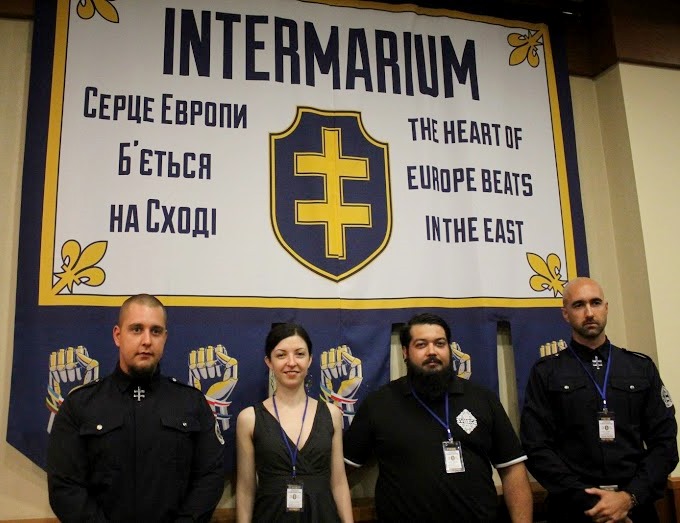
July 3, after the official conference part, the leaders of youth branches of political parties and nationalist movements of the Adriatic-Baltic-Black Sea area continued communication at the headquarters of the “Azov” Civil Corps. During the intensive work of the delegates from Lithuania, Poland, Croatia, Belarus and Russia a wide range of issues was discussed, from the political system of the Intermarium as a geopolitical union to specific ways of joint information resistance to the Kremlin’s lobby in Eastern and Central Europe.
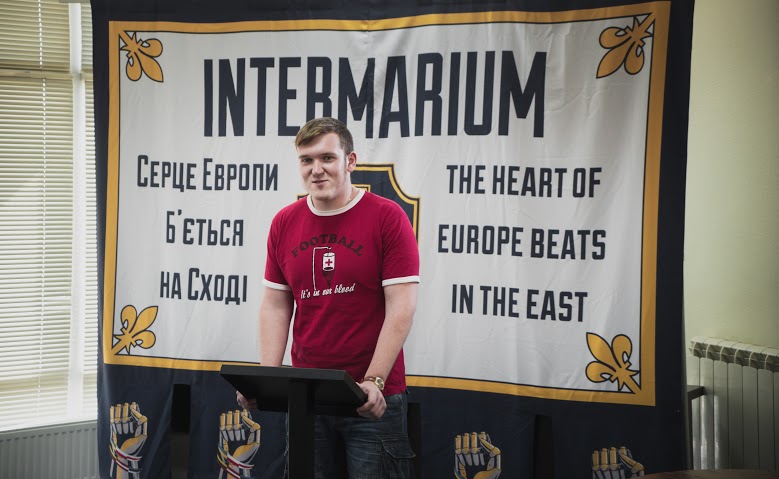
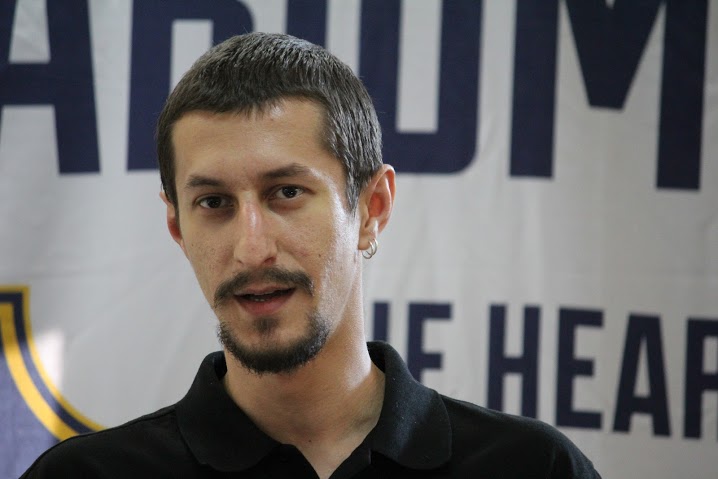
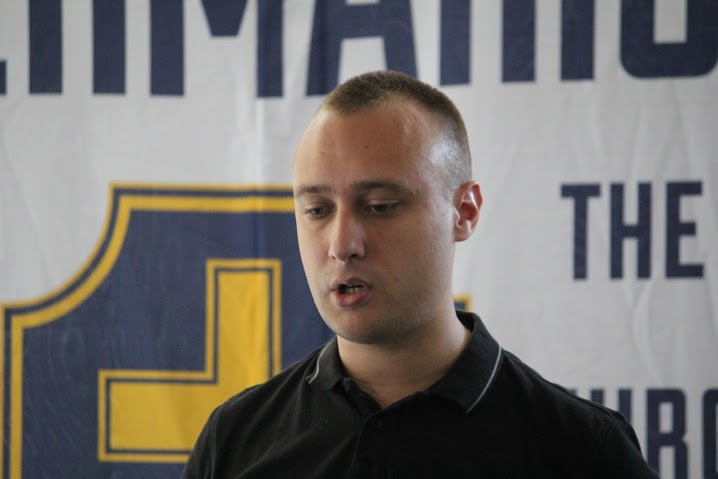
It should be noted that it was the case of not merely joint resistance to the Russian threat but a truly historic breakthrough in international relations resulting in the establishment of close cooperation between Ukrainian and Polish nationalists, on the one hand, and Polish and Lithuanian nationalists, on the other. The Adriatic-Baltic-Black Sea Union as a supranational idea of Central and Eastern European countries’ alliance released an enormous amount of creative energy previously wasted on useless debates about the conflicts of the past and promises to evolve into fruitful publishing, touristic and even government projects aimed at enhancing cultural, educational, academic and scientific cooperation and overcoming ethnic tensions among the countries of the region.
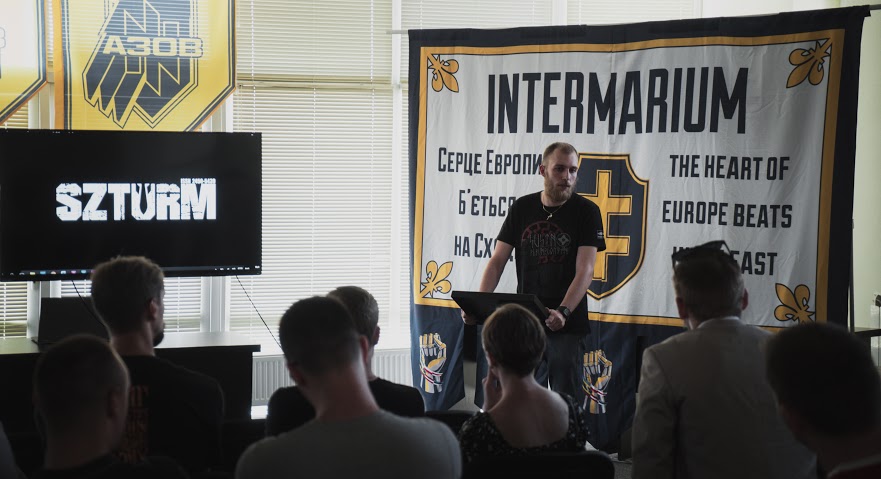
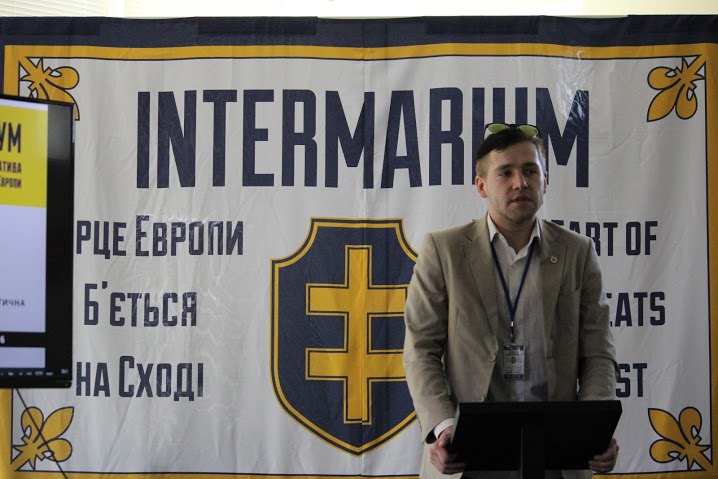
Mindaugas Sidaravičius, head of the youth wing of the party “Lithuanian Nationalist Union,” which is essentially a separate organization, Witold Dobrowolski, editor of the Polish nationalist magazine “Szturm,” Michał Orzechowski, a journalist of the “World Solidarity” portal from Warsaw, a representative of the “Baltic Vanguard of Russian Resistance” (BARS) who suggested an alliance of the Kaliningrad region with the future Baltic-Black Sea Union, already familiar Mariusz Patey, Leo Marić and Zmicier Mickiewicz, Andrey Kuznetsov, chief editor of the information portal #Orange, and, finally, representatives of the “Russian Center,” a coordination platform of the Russian nationalist exile in Kyiv and now all the supporters of the Intermarium idea in the territory of Russia, who prepared for the participants an informative brochure about the madness of neo-Soviet revanchism in Russia, were the main faces of the meeting, the Ukrainian delegation aside, who have already started implementing tasks to promote the development of the Intermarium: the creation of a joint information platform, outlining a program of actions and the directions of lobbying the Intermarium project at the local, national and all-European levels.
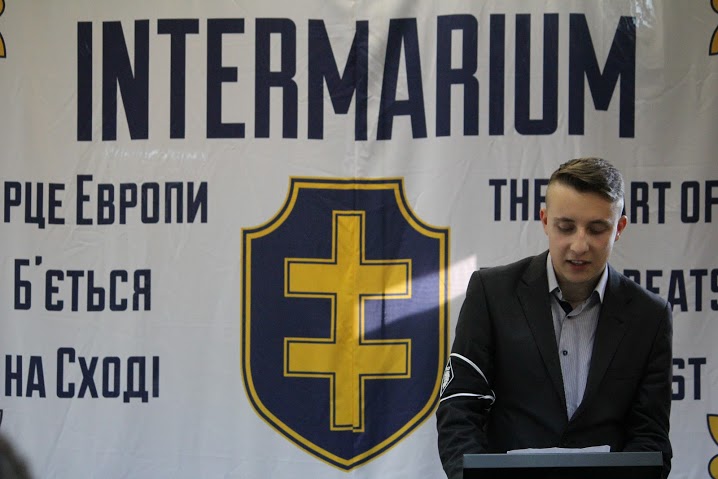
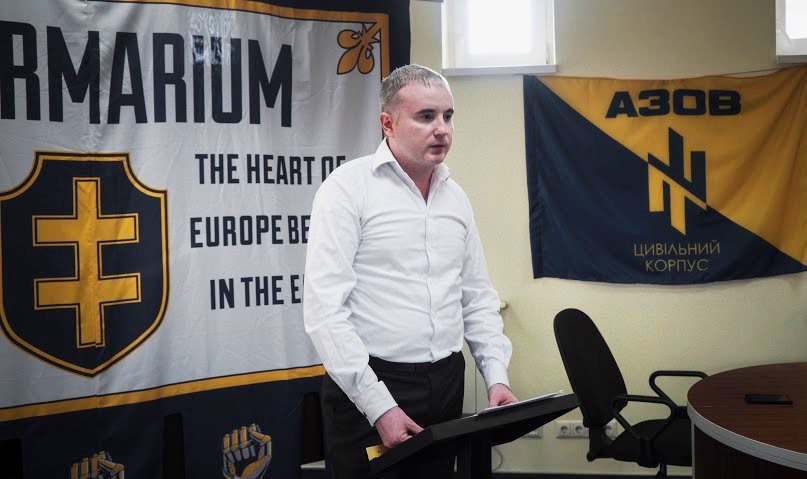

In addition, during the informal part, a spectacular film about the two years of the national revival and struggle against the invader by the Ukrainian people on the example of achievements of the Azov Movement was presented. Also, materials of “Orientyr,” the first Ukrainian publishing house founded by the fighters and volunteers of the novel national liberation war, were distributed at the meeting.
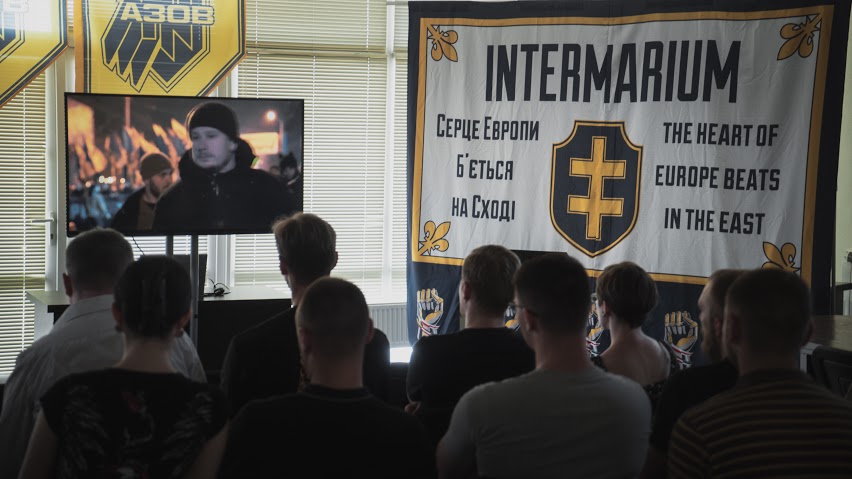
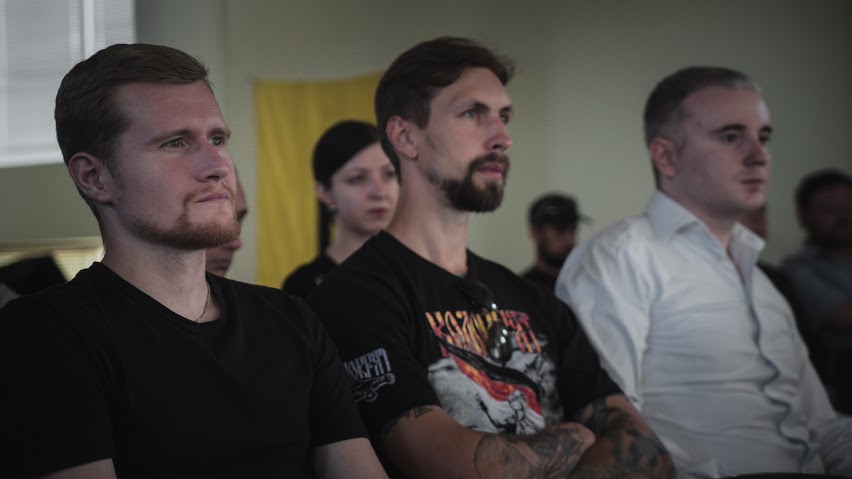
Lively talks on the sidelines and making plans for further systematic cooperation between national delegations, which summarized the event, allow saying with certainty that from the “alternative” geopolitical project and integration vector the Adriatic-Baltic-Black Sea Union turns into the major one.
